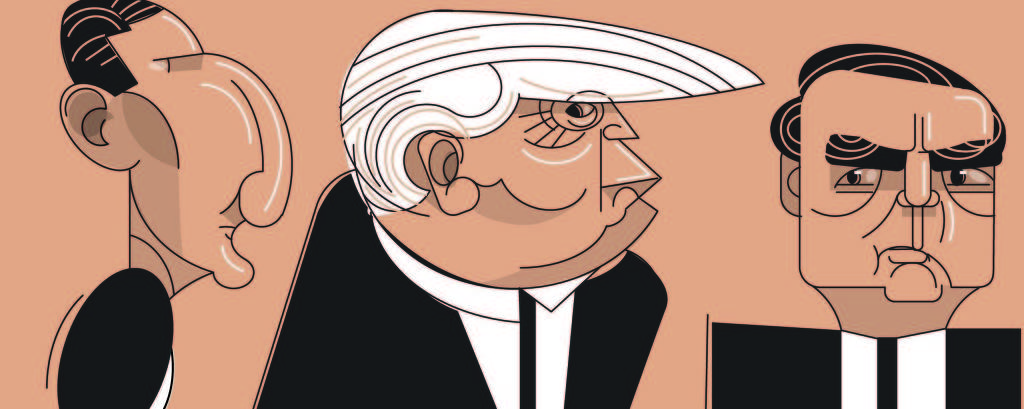What could exist in common between the future Jair Bolsonaro administration and term of former president Fernando Collor de Mello (1990-1992)? What are the similarities and differences between the Brazilian president-elect and the current US president Donald Trump?
Against the background of these two issues, Folha held two meetings this week to discuss our political coverage in 2019.
It has been a Folha tradition since the 1980s to hold newsroom debates both to discuss priorities and challenges for the upcoming year and to discuss broader philosophical themes of journalism.
We started with a screening of documentary series "The Fourth Estate," by award-winning director Liz Garbus, which followed New York Times reporters in the first 16 months of the Trump administration.
With rare access to NYT journalists and their internal debates, the four-hour series is a competent and diligent account of how news is made, although it doesn't always manage to go deep or be questioning.
Executive editor Sérgio Dávila said the screening was timely because of the similar ways that Trump and Bolsonaro deal with the press, as well as some coincidences in political bigger picture: the rise to power of a new political force, which journalists are unfamiliar with, and hostility shown from essential players from this new force to professional journalism.
The mention of the Collor administration refers to a turbulent, but a journalistically rich period for Folha. From the 1989 presidential campaign on, we were the newspaper that most accurately covered Collor. We revealed, for example, his relationship with sugarcane mill owners, demystifying the aura of "hunter of the corrupted" and going over bank accounts and government contracts. The Collor administration's reaction was swift and violent, with Federal Police raids and several lawsuits against Folha and its journalists.
The president-elect is already showing signs that he will take the same confrontation route. After disturbing news reports, such as the existence of a "phantom aide" in his cabinet and the use of illegal practices in his campaign (for example, the WhatsApp mass blasts), Bolsonaro publicly attacked Folha on several occasions, calling for the newspaper to close down and threatening retatiation. Moments like these require tenacity and temperance from the newsroom.
During the debate, Davila said: "Folha will not make opposition to the Bolsonaro administration, because we don't oppose any administration. We are nonpartisan. We will report the positive and negative in the new administration with equal prominence. We will be critical, but also pluralistic, we will be investigative, but also propositive. "
One main feature of Bolsonaro and his team is that, for the most part, they are new to politics, public administration and media. His election was won without marketers or advertisers, with almost no time on TV, and relying heavily on direct communication with voters via social media.
In their relationship with journalists, in general, Bolsonaro's team don't recourse to the usual intermediates, like press aides or professional spokespersons.
No matter how tempting it is to compare Collor and Bolsonaro, my feeling is that society has changed so much in these almost 30 years that the differences between them prevent proper comparison. The world of electronic communication in real time turns a period with restricted access to the world wide web and rare cellular phones into pre-history.
Bolsonaro's victory in fact removes a São Paulo elite from power. A group that orbited around Brasília for more than two decades. The newspaper will have to figure out how to go beyond these intellectuals, linked to both PSDB and PT. It will be necessary to discover and understand how the new occupants of Palácio do Planalto think and act, and who inspires them.
Reporters must renew their sources, change their investigation methods, be aware of their bias. As an example, I can mention the relationship with two groups that are far removed from the newspaper and its journalists, but who will be very strong in the upcoming administration: evangelicals and the military.
In short, Folha must reinforce its parameters to remain firm in the practice of critical, plural and nonpartisan journalism. It is worth closing with the words of Otavio Frias Filho (1957-2018), Folha's Editor-In-Chief since 1984, in an open letter to Collor that marked the peak of its tense relations with the president, in 1991: "Governments are swallowed up by the whirlwind of time, but the newspaper, as long as it cultivates its commitment to readers' rights to the truth, will continue to play its role in oxygenating public life. "
Translated by NATASHA MADOV
Read the article in the original language
